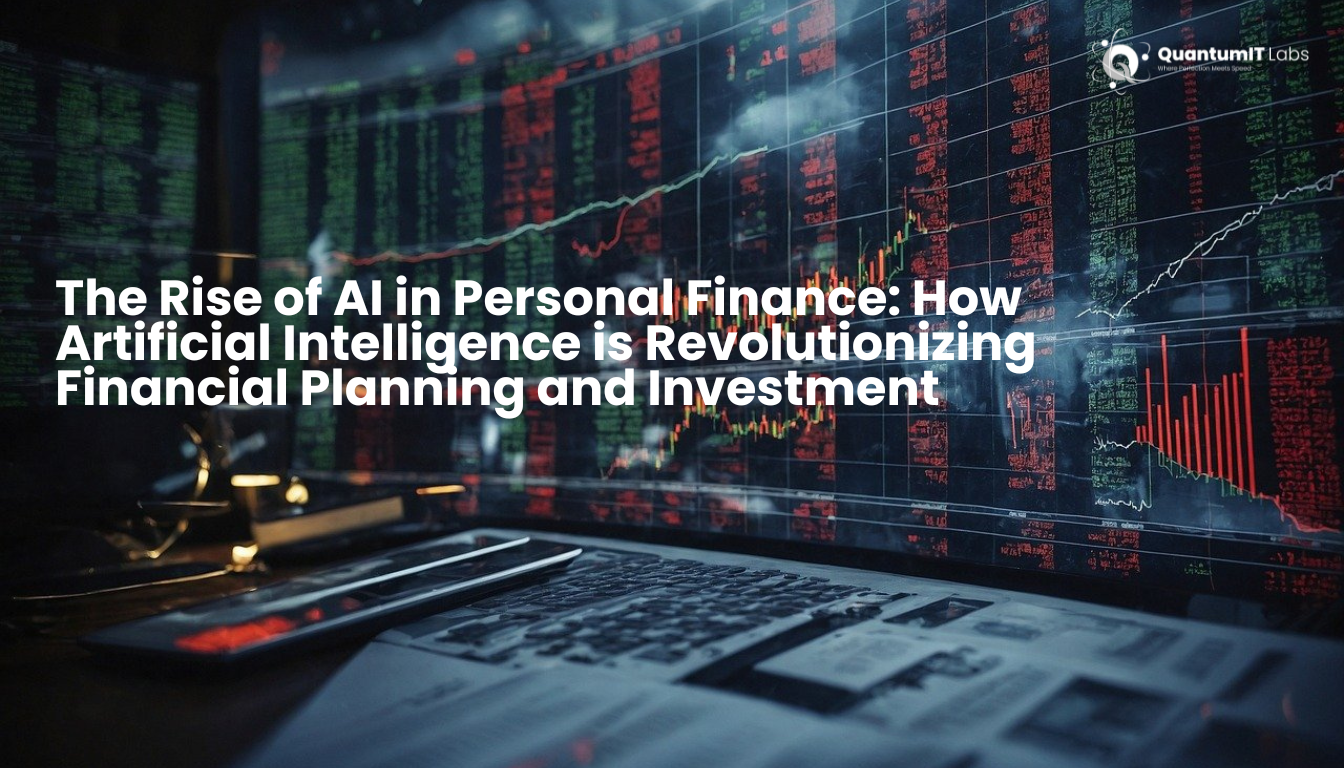In recent years, artificial intelligence (AI) has become a game-changer in multiple industries, and personal finance is no exception. From budgeting to investment planning, AI tools are revolutionizing how individuals manage their money, making financial planning more efficient, accessible, and personalized than ever before.
Let’s take a closer look at how AI is reshaping the world of personal finance and why it’s time to embrace this innovative technology.
1. AI-Powered Budgeting: Taking the Guesswork Out of Managing Money
Traditionally, budgeting required meticulous planning and tracking, often leading to frustration and missed goals. However, AI-powered budgeting apps are changing the game by automating the process. These smart apps use algorithms to analyze your spending patterns, categorize expenses, and even predict future spending based on your habits.
Apps like Mint and YNAB (You Need A Budget) now use AI to provide personalized budgeting tips, recommend ways to cut expenses, and set financial goals. AI also allows users to receive real-time notifications on spending and account balances, helping them stay on track without the tedious manual work.
2. Robo-Advisors: Making Investment Accessible to All
Investing has traditionally been seen as a complex and time-consuming activity, often reserved for those with significant capital or financial knowledge. Enter robo-advisors, AI-driven platforms that offer automated, algorithm-based portfolio management advice.
Robo-advisors like Betterment and Wealthfront analyze your financial situation, risk tolerance, and investment goals, then recommend tailored portfolios with little to no human intervention. These tools make investing accessible to everyone, regardless of financial background or income level, by offering lower fees and high accessibility.
AI’s role in these platforms also enables users to receive personalized investment strategies that evolve with market conditions, ensuring that their portfolios are continuously optimized.
3. AI in Risk Management: Smarter Financial Decisions
Risk is inherent in every investment, but AI is making it easier to manage. By analyzing vast amounts of financial data, AI algorithms can help predict and assess risk factors with greater accuracy. For instance, AI tools can detect emerging trends in the market, assess credit risk for loans, and even identify patterns that may signal an economic downturn.
Financial institutions are already using AI to enhance decision-making and reduce human error in assessing risk. For individuals, AI-powered apps can alert users to potentially risky financial situations and offer alternative strategies to minimize those risks. This makes risk management more proactive rather than reactive.
4. AI-Driven Financial Planning: Personalized Guidance at Scale
AI has taken financial planning beyond simple budgeting and investment advice. Now, it can offer comprehensive, personalized financial strategies tailored to individual goals. AI-powered platforms analyze your entire financial situation, from income and expenses to debts and investments, creating a holistic financial plan that evolves with your life stages.
For example, AI can help you plan for major life events, such as buying a house, saving for retirement, or planning for college education expenses. With machine learning, AI continuously adapts your financial plan based on changes in your income, spending, and broader economic conditions. Platforms like Personal Capital and MoneyLion leverage AI to provide personalized financial advice, from debt management to retirement savings, with minimal effort on your part.
5. Fraud Detection: Enhancing Security in Financial Transactions
Security is a top concern for individuals managing their finances, especially with the rise of digital transactions. AI plays a crucial role in fraud detection by monitoring transactions in real-time, detecting suspicious activity, and flagging potential security threats faster than human analysts could.
AI uses machine learning to identify patterns in transaction data and spot anomalies that could indicate fraudulent behavior. Whether it’s unauthorized withdrawals or unusual spending patterns, AI can quickly identify and prevent fraudulent transactions, providing an added layer of protection to consumers.
6. The Future of AI in Personal Finance
As AI technology continues to evolve, its role in personal finance will only expand. Future developments could see even more sophisticated tools that integrate voice assistants for financial planning, advanced predictive analytics to anticipate financial needs, and AI-driven credit scoring models to provide fairer lending practices.
The intersection of AI and finance could lead to new, innovative solutions that make managing personal finances even more seamless and efficient. Furthermore, as AI continues to democratize access to financial planning tools, individuals with fewer resources and less financial literacy will have greater opportunities to take control of their financial futures.
Final Thoughts: Embracing the AI Revolution in Personal Finance
The rise of AI in personal finance is not just a trend; it’s a revolutionary shift that makes managing money easier, smarter, and more accessible. From budgeting apps to robo-advisors and beyond, AI is helping individuals make better financial decisions, reduce risks, and plan for the future with minimal effort.
While there are still concerns around data privacy and the ethical implications of AI in finance, one thing is clear: the future of personal finance is powered by AI. As these technologies continue to evolve, those who embrace them will be at the forefront of the next wave of financial success.
Are you ready to leverage AI for your financial future? Contact Us Today!

